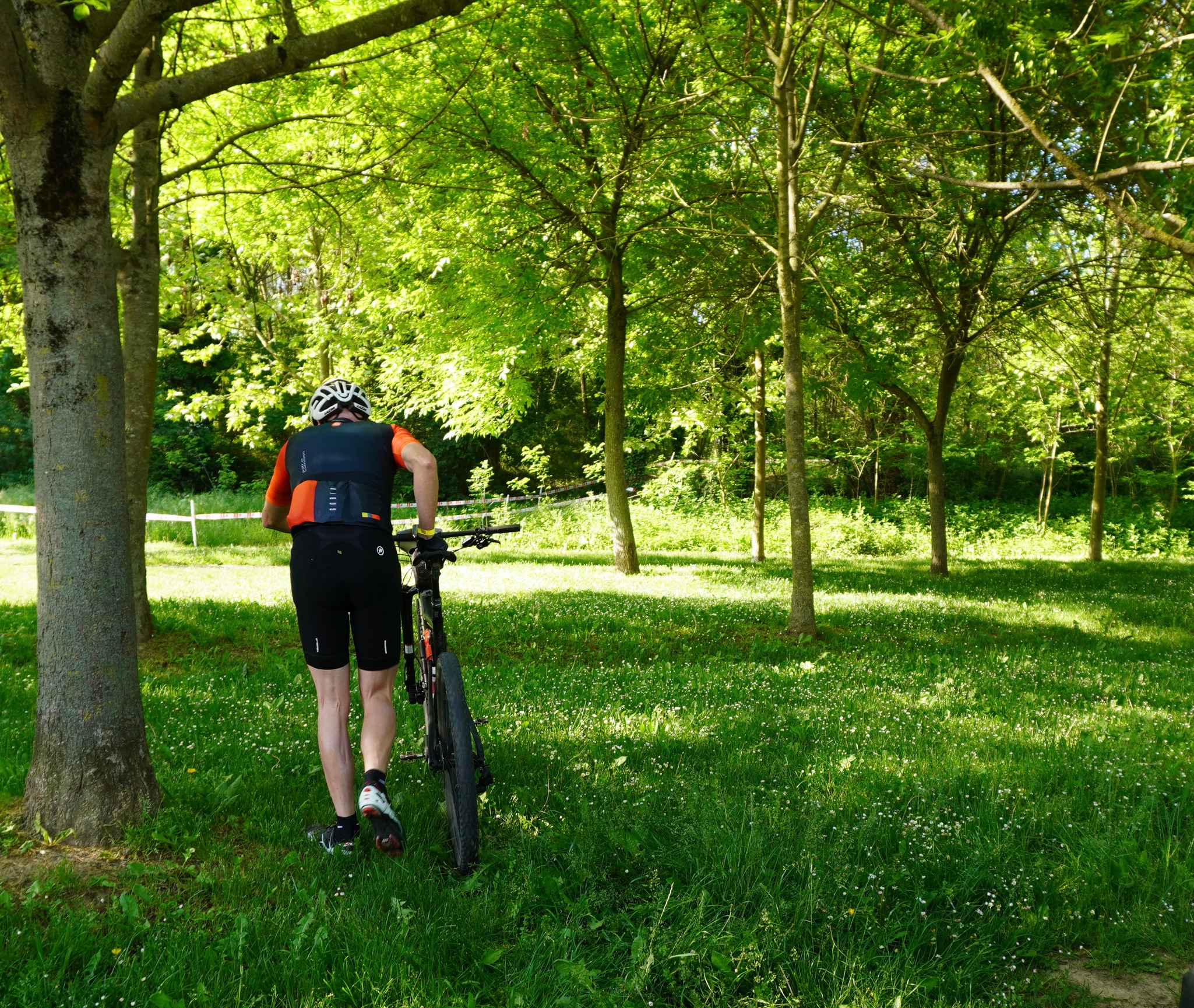How to Recover from Overtraining?

What is Over Training?
The simplest explanation of over training is when you train so much and/or so hard with so little rest that you stop improving and your performance starts getting worse. British Cycling have usefully summarised our understanding of training and when you might be overdoing it as follows:
| Functional over-reaching | When the training you do eventually leads to improvements in performance |
| Non-functional over-reaching | When the training you do does not lead or stops leading to improvements in performance |
| Overtraining | A verb used to describe doing too much training with too little recovery. |
| Over training syndrome | Medically diagnosed and usually the result of prolonged period(s) of non-functional over-reaching. |
My personal experience is that overtraining can appear in endurance athletes for a variety of reasons:
- Off the back of some great performances where the athlete, on a high from success, increases training load too much with too little recovery to get more and more success.
- As a result of prolonged life stressors through which the athlete has attempted to continue to train normally resulting in poor or no recovery
- As a result of under-fuelling - intentional or accidental - leading to poor recovery.
- Off the back of a prolonged break in which the athlete tries too return too quickly to a previous level of fitness
Wherever it comes from overtraining leaves the athlete feeling frustrated and confused about what is happening. As performance drops the determination of the athlete can result in them training harder and longer making the situation worse. In the worst cases it often results in a need for a prolonged period out of competition and in some cases near or complete rest from the activities they love.
So while this article is about some general principles around recovery from overtraining, by far the best scenario is to avoid it altogether.
As a simple guide if you are experiencing some of the following which are not resolved by a few easy days you may be edging into the realm of some serious overtraining:
- Unexplained weight loss
- Unusual low mood, irritability, depression, anxiety
- Poor sleep - inability to sleep, waking early, waking unrefreshed
- Unusual thirst especially at night
- Increased perceived exertion during workouts, even when relatively easy
- A reduction in usual performance markers (power, pace) which is not resolved by a few days rest/easy training
- Increased number of infections/illnesses
- Increased number of injuries
- Generalised unusual fatigue
- Unusually poor motivation to train
As a guide my own experience of over-training manifested as follows:
After a period of very high stress over a number of months in which I continued to train at the same intensity and volume I began experiencing extreme feelings of fatigue; I wanted to just curl up at the side of the path and sleep in the middle of a run. I put my low mood and irritability down to the lifestyle stressors around at the time, but I was definitely depressed. In races I would hit a wall which started to appear earlier and earlier where I simply had nothing left and was barely managing to jog across the finish line. While my motivation to train did not really decline (it was my escape) I would begin each session wondering how I was going to complete it; my motivation for anything outside training was unusually poor. I finally admitted something was seriously wrong when warming up with my club mates for the usual Tuesday night session and I felt like we were sprinting, I could barely keep up with them as they chatted away running at their usual easy warm up pace.

Recovery from over-training is complicated; it requires time and patience. Here are 7 helpful stages to consider to enable you to return to sport:
1) Acceptance
It's important once you have overtrained in some way to accept where you are now, however frustrating this is. Accepting this can be a bit like going through a grieving process as follows:
- Denial - telling yourself that there is another reason why you can't perform/have not been performing, or that it's just a 'blip' and things will get better, or that you just need to train harder. This stage usually results in increased frustration as you continue to get more and more tired.
- Anger - anger with your body for 'giving out,' anger with yourself for 'allowing yourself to get into this stage,' anger with other athletes who are getting fitter and faster and anger with the series of events that have led you into this situation.
- Bargaining - here you may try to do some clever bargaining - like taking one or two easy days and then telling yourself 'everything will be ok then' or dialling in your diet, cutting back on alcohol, cross training, basically anything to try and keep the same volume/intensity or for a 'quick fix.' This generally doesn't work but leads to cycles of fatigue, a small amount of rest may give you some improvement but going straight back into the volume/intensity of before means you very quickly fall back to your original overtrained self.
- Depression - this is when the enormity of your situation can hit; you realise you have to say goodbye to your season's goals and you have to drastically change and reduce the thing you love doing: training. If training is also a way for you to de-stress and cope with other difficulties these too can start to become major problems that you now have to deal with on top of not being unable to train. Athletes who train in groups often can feel really isolated at this stage as their social commitments are massively reduced or non-existent. Friends who are running well can often not really understand and will say things like 'come along, we'll go slowly, it's only a short one' not realising that their slow is still far too fast for you and 'only a short one' feels like an ultra.
- Acceptance - finally as you go through these stages (in no particular order) you will hopefully come to a point where you can accept where you are now, including what went wrong, how long it's been going on for and having a realistic view of how you might be able to return to your sport in a reasonable timeline. This may be helped by a medical diagnosis but in my experience this can be very difficult to obtain outside of the professional elite arena. Finding other activities can help you get to this stage so that you have another outlet for some of your social and emotional needs. Ultimately once you are here you can start and plan your return.
2) Get some objectivity
It can be really hard to pinpoint fatigue markers and we can be really good at overriding fatigue signals when we really want to train - that's probably one of the things that make good endurance athletes so good. So having some objective markers to help you track how you are doing can be really helpful.
Heart Rate Variability - this will start to rise as you recover; learning and knowing what your baseline is (it's different for everyone) and seeing two to three consecutive days below this baseline is a good sign you need to dial it back some more.
Pace/Power for a given Rate of Perceived Exertion - setting off at what you perceive to be a 1 or 2 on your usual terrain and make a note of the pace/power - is this is a lot slower than your usual zone 1 or 2 you know you are tired.
Even as a professional coach I often seek training advice from others, mainly because it's impossible to be objective about your own training. So whether you are self-coaching or not, getting some advice from a professional if you are seriously over-trained is a good call. A good coach will be able to discuss with you how you might have over-trained and help you devise a plan to get back on track.
A lot of coaches offer one off consultations if you don't want to commit to a monthly plan. Here at Endurance Bike and Run we are very keen to help clients return to the sport they love; if you think we can help please contact us.
3) Patience
Now it's the patience game - a serious bout of overtraining which may have been going on for months is not going to sort itself out in days or weeks. Be prepared to spend some serious time recovering and be open to this 'taking as long as it needs to take.' This also means accepting that recovery is not linear, you may start to make some progress and then experience a setback for some reason.
4) Focus on where you are now
A key part to recovery from over-training is focusing on where you are now, not where you think you should be. Being open on a day by day basis to what your body can do today and accepting that that is where you are is a tricky skill, but actually one that is well worth training because it is also a great skill to have as an athlete. The art of of getting fit is really about trying some form of training and seeing how your body responds. Sometimes you know when you set off that 'today is not the day' so you can back off and think about what to do tomorrow. When you are recovering from over-training there might be a lot of days when 'today is not the day' so being able to just accept that and moving on will help you in the future as well as the present.
Practising some form of mindfulness can help with this, whether it's meditation, a mindful activity, or just as you gradually return to your sport doing so in a mindful way, being totally present and in tune with your body and what it can give you on this particular day.
5) Find a level of activity that you can easily tolerate
The way back from over-training is tricky and this is the part where professional input can help, but essentially you are looking to find a level of activity that you can maintain, even if this seems very low. Keeping everything really easy (ie so that it feels easy and you know you can easily finish it). Typically this might equate to zone 1 (recovery zone) training, but in practice you might not be able to use your old training zones so using some other measure may help like:
Not feeling out of breath during the activity so you can breath through your nose the whole time or chat as you do the activity.
When you finish the activity you do not feel exhausted but rather feel like you could do more if you had to.
What this level is will depend on how over-trained you are and what your history of training is, but the key is to start cautiously - it's always better to do less than too much in any phase of training and particularly important here. So it might be that you start by trying to do as little 20 minutes of very easy training two to three times per week and see how that feels.
John used to follow a default when he felt tired of 5 times 5 miles and one times 10 miles when he needed a period of recovery, but this was a big reduction from his 100 mile weeks (running). My usual default when in recovery is just 30 minutes very easy running 3 to 5 times per week.
6) Find some helpful low level activities you can easily tolerate
Part of your return may include cross training, the body can sometimes respond better to different activities when you have over-training in one. For example you might respond better to walking than low level cycling, or if you have been exclusively a runner you might find you can tolerate some very easy cycling or swimming. Just proceed with caution with these - it's easy to over-do a new activity if you think it is not tiring as much as your old one and become too tired again very quickly.

7) Get serious about recovery
Doing things that actively promote recovery is a good practise for all athletes, but particularly so when you are recovering from overtraining. Eating well, keeping well hydrated and getting good clean sleep with a good sleep routine will help support your recovery. Other things that have been shown to have good effect are:
- Cold baths to combat muscle soreness
- Compression gear after exercise again to combat muscle soreness
- Eating some carbohydrates before bed can promote a better sleep
- Controlled breathing after workouts (e.g. in for 5, hold for 5 out for 5, hold for 5)
- Meditation
- Engaging in other (more restful) activities that you enjoy - reading, watching a movie, socialising etc.
Additional questions
How do I know if I'm recovered?
When you usual markers start to return to normal (HRV, power/pace at a given RPE), your symptoms have subsided and you can support a minimal amount of training you may be ready to increase the load, but you will need to be prepared to dial it back again if you start to feel overtrained again. Once some cautious load increase shows a fitness response you can start to think about training goals other than recovery. However, it always worth making sure you stay cautious and be prepared for some longer lasting side effects which you may need to continue to be aware of.
How can I avoid overtraining?
Proceed with caution in any training programme; you can do far more damage doing too much than you can lose by doing slightly less. For a lot of people the thing they neglect is recovery, so making sure that you do recover taking an easy week every third or fourth week and within a harder training period mix up hard and easy days. Making your easy days really easy or just resting altogether if you need to. If you think you might be overtraining, take some rest and put some of the objectivity measures discussed above into place.
August 30, 2023


Comments